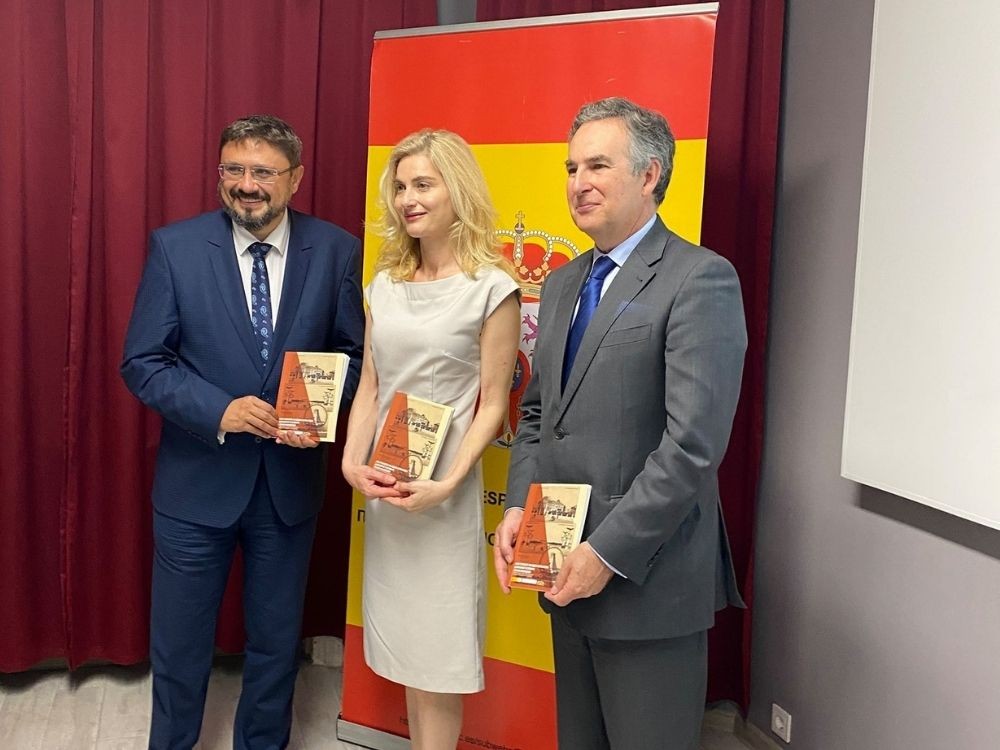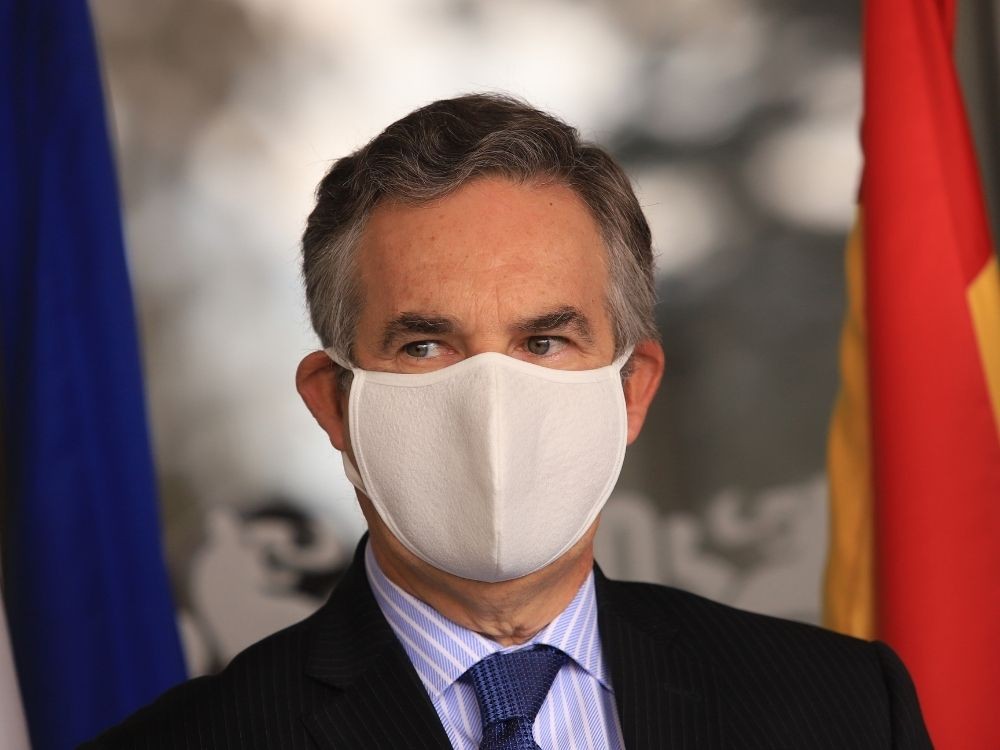The Spanish embassy in Bulgaria has resumed its public initiatives after a lengthy interruption due to the Covid-19 pandemic. Alongside the Ibero American Film Week which is drawing to a close, the embassy’s culture department, in partnership with the Archives State Agency published a travel book entitled: “Walking in the footsteps of a Spanish diplomat in Sofia: Julio Palencia. Itinerary and review of diplomatic relations between Spain and Bulgaria”.
The travelogue includes a wealth of illustrative material and interesting facts hitherto undescribed in history books which transport readers back in time. Its goal is to promote cooperation between the two countries in the sphere of tourism.
“It is not the book’s aim to focus on Julio Palencia because there are numerous initiatives dedicated to his work, nor does it purport to be a book of history. The travelogue is an excellent guidebook for all people who want to spend a weekend in Sofia, lending a Spanish touch to their visit.”

Radio Bulgaria took the release of the bilingual travel book as an occasion for an interview with the Spanish ambassador about the relations between the two countries during the pandemic.
“Economically and politically, Bulgarian-Spanish relations are excellent, they are excellent in culture as well, and especially in education,” H. E. Alejandro Polanco, ambassador of the Kingdom of Spain to the Republic of Bulgaria said in his interview for Radio Bulgaria. “The pandemic had its effect, but only on the intensity, not the quality of these relations, imposing a certain distance. Bilateral tourism, which had in recent years been marking a sustained growth, was brought to a standstill. In the past 4-5 years we had 60,000-70,000 Spanish tourists coming to Bulgaria, and around 120,000 Bulgarians going to Spain. Any increase in these figures was halted due to communication problems. In terms of the economy there was also a decline in trade.”
The diplomat says that there are many aspects which attract tourists from Spain to Bulgaria and one of them is the emotional similarities between the two.
“With Bulgarians there is, perhaps, a Slavic element which makes them more cool and collected but there is also a Mediterranean side which makes communication much easier. This human aspect is important to people in Spain,” Alejandro Polanco says:
“When they come to Bulgaria my compatriots are interested in the towns, in archaeological discoveries and in history. There are many places in Sofia that are connected with Spain, also in Plovdiv, a remarkable city with its Thracian heritage. The fact there is such a concentration of artifacts over such a small territory speaks for itself. You have magnificent nature. The mountains are accessible, the landscapes are pristine. I love the mountains, I love going up Mount Vitosha, Rila, the Rhodopes. Bulgaria offers a tourist product to all people who love nature at its most pristine.”

Can it be said that Bulgaria and Spain are alike, and in what way?
“Bulgaria and Spain are countries located at the Eastern and the Western end of Europe. This means we have very intensive relations with our neighbours. Sometimes these relations are friendly, at other times they may be difficult but that is what makes us the kind of people who know what is going on on the other side of our borders – something that brings nations together.”
Photos: BGNES, Spanish embassy in Bulgaria
''If the Constitution is not amended, there is no point in holding another election under the same rules and with the same bought, controlled and corporate vote'', the co-chairman of the parliamentary group of BSP-United Left Borislav Gutsanov said in..
The first sitting of the newly elected National Assembly has ended. As in the last three Bulgarian parliaments, the election of a speaker proved to be a serious challenge, as neither of the two candidates - Raya Nazarian of GERB-SDS and Andrei Tsekov of..
The residents of the Bulgarian-populated region of Taraclia and the Gagauz Autonomous Area in the Republic of Moldova voted over 90% "no" in the October 20, 2024, referendum, where Moldovan citizens were asked if they approved Constitutional amendments..

+359 2 9336 661
